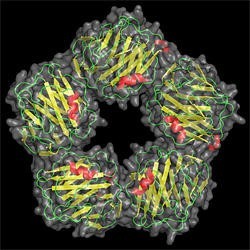
Asthma is one of the diseases that affect the passage of breathing in the airways of the lungs (bronchioles). It can be caused due to long-term swelling of these passages which makes the breathing tubes highly sensitive to a variety of “triggers”. When these swellings occur the airway is filled with mucus. Muscles that are present in the breathing passage when start to contract causing the narrowing of the breathing passage which makes it difficult for the air to be exhaled from the lungs. This conflict of exhaling causes the symptoms of an asthma attack. Asthma is also known as obstructive lung disease. Medical terms for such lung diseases are often known as COPD (Chronic obstructive pulmonary disease), which actually belongs to a group of diseases such as bronchitis and emphysema. Although a person having asthma may not have COPD because there are individuals whose functions of the lungs turn normal when they don’t undergo an attack. However, others may have COPD alongside and the lung functions result in not being treatable. Symptoms occur at all times.
Asthma is a disease that cannot be cured but can only be controlled, It is a condition that one has to live with every day. You may have an attack if exposed to any of your triggers. Unlike any other lung disease, asthma is capable of being reversed. Researchers may have not found the exact cause of asthma but they have been paying attention to why some of us develop asthma while others don’t. Genes are yet to be confirmed as the cause of this tendency Environment may be a factor and where the person lives may partly be determined as a factor of having the attacks. Asthma attacks are a reaction to a particular trigger. The trigger causes an allergic reaction which stimulates the body’s immune system to alert to an invader. When the cells of our immune system sense the invader, it sets off a reaction to fight the invader which results in the swelling of our air passages thus causing a symptom of an asthma attack. Hence asthma is also termed a reactive airway disease.
Each person has their own set of triggers but the most common triggers include inhaling polluted air or airway irritants at the workplace, perfumes, products with scents, dust, animal dander, sudden exposure to dry weather, cold weather, tobacco, and wood smoke or any infection such as cold or flu. Any over-excitement, stress, or physical exercise may also be a trigger. Other triggers may also be sulfates present in certain food and wine, and GERD (Gastroesophageal reflux disease). Also, some women (Not all) have asthma symptoms closely tied to the menstrual cycle. Other than these other factors that cause the development of asthma are hay fever also known as allergic rhinitis, eczema which is a skin allergy, and genetic predisposition where any of the family members also have asthma.
Visit the doctor if you are constantly coughing, feeling breathlessness, chest tightness, or if you have a difficulty in speaking or wheezing which is a hissing/whistling sound while breathing. The doctor may then determine the severity of asthma symptoms which are classified into mild intermittent which includes the attacks caused twice within a day which may last up to some hours occurring twice a month with no symptoms of the attack between the two occurred, mild persistent which may again include attacks more than twice a week but the attack may not happen in the same day or every day but more than twice a month, moderate persistent which includes attacks occurring daily more than once a week and these may occur twice a week and last for days, severe persistent includes frequent severe attacks in the same day. In case of moderately persistent, the doctor may suggest quick relief medication and changes in daily activities and in the case of severe persistent the doctor may suggest limiting daily activities, this however not mean a person having mild persistent cannot have a severe attack. The severity of asthma changes over time and it may become better or worse.
In any of these cases the doctor may also tell you to take these important laboratory tests:
- Spirometer: This laboratory test measures and monitors accurately the functions of your lungs. During the test mainly determines how forcefully you exhale or inhale.
- Peak flow meter: This laboratory test determines how forcefully you exhale during the attack. It is a tool which during the attack monitors the severity of the attack as well as any destruction caused.
- Oximetry: This laboratory test is a painless probe also called a pulse oximeter when placed on your fingertips measures the amount of oxygen in your bloodstream. A blood test or a blood sample may not pinpoint the cause of asthma but it is useful to check for any signs of infections or to determine the amount of oxygen and carbon dioxide present in your body.
- Methacholine challenge: This laboratory test is also known as asthma trigger as when you inhale methacholine it causes a mild restriction in the airway and if you react to it then it is likely that you have asthma. This test is also important to check if your lung function is normal or not.
- Nitric oxide test: This laboratory test may not be available everywhere but it measures the amount of gas and nitric oxide that you have in your breath when the airways are swelled to determine if you have higher than normal nitric oxide levels.
- Sputum eosinophils: This laboratory test determines the white blood cells also known as eosinophils found in the mixture of your saliva and sputum (mucus) that occurs while coughing
- Absolute Eosinophils:1 gt level – the 1gt is the immunoglobin that normally mediates the immune response in allergy
- Comprehensive allergy panel – this test will determine the trigger that leads to an athematic attack.
- Skin Test or Blood test: This laboratory test is taken to identify if you have any allergies to pets or dust. Mold or pollen. And if this test identifies the allergy then it can lead to the approval of allergen immunotherapy.
- Provocative Test for Exercise: This laboratory test helps your doctor to measure any obstruction caused during or after you perform any physical activity or breathe cold air.
- Chest X-ray: This test is taken to rule out any other possible condition that may cause symptoms of asthma.
You have may have a chance of controlling your asthma if diagnosed early. With proper treatment, you may have fewer or less attacks but if you don’t go for a proper treatment then the asthma attacks can also cause a disability or death.






